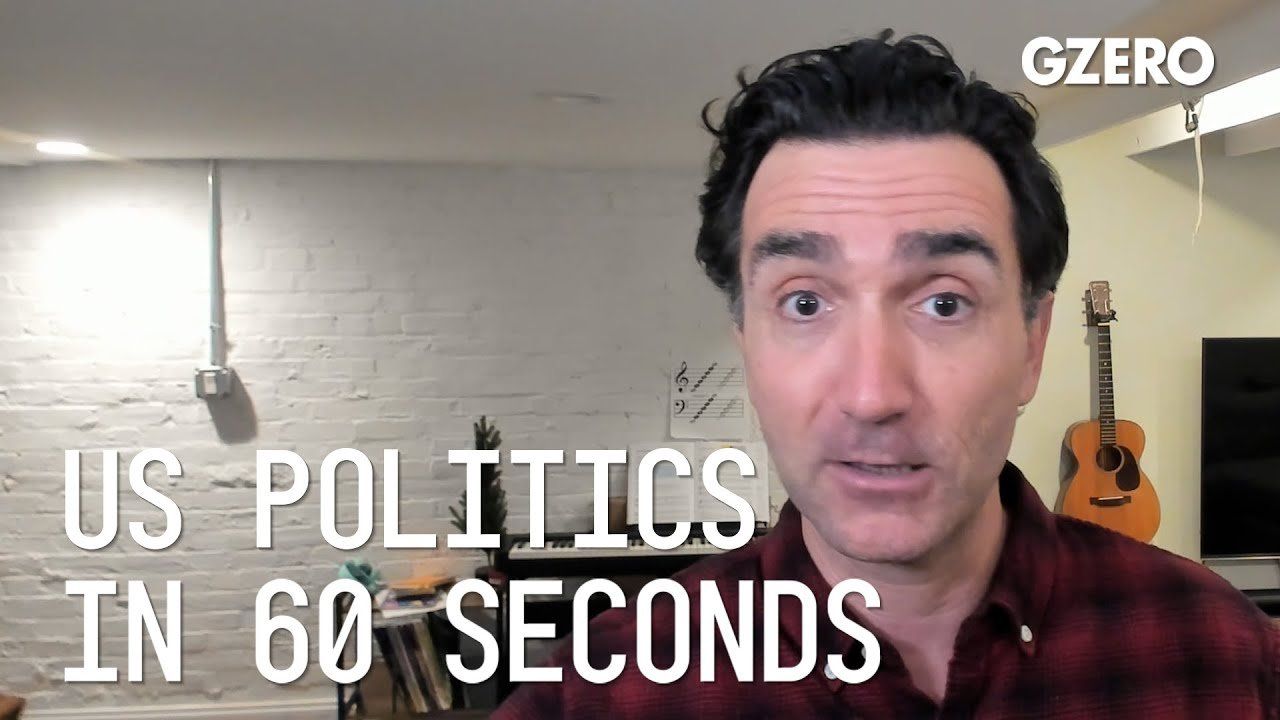US Politics In 60 Seconds
Hugely popular TikTok unlikely to be banned by US Congress

Half of the US uses TikTok but Congress may ban it anyway | US Politics In :60 | GZERO Media

Jon Lieber, head of Eurasia Group's coverage of political and policy developments in Washington, DC shares his perspective on US politics:
Is Washington going to ban TikTok?
If you used the social media app TikTok over the past week, you've probably noticed that a lot of your favorite creators are starting to sound the alarm about a potential nationwide ban on the wildly popular application. Over half of US states and the federal government have already banned TikTok from some or all government-issued devices, and Congress is now mulling further actions, with Republicans and Democrats endorsing legislation that could directly or indirectly lead to a blanket ban on its operating in the United States.
A House committee hearing on Thursday featuring the TikTok CEO did not go well for the Chinese-owned company, with Democrats sounding the alarm about teenagers and mental health, and Republicans connecting it to a national security threat from China and drug trafficking.
Why has a social media app with over 150 million American users created so much controversy? Supporters of a nationwide TikTok ban argue that the app represents a threat to national security because its parent company ByteDance has connections to the Chinese Communist Party, who are accused of potentially using the app to collect massive amounts of data on American users. The US and China don't exactly have the best relationship right now, with lawmakers worried about Chinese data collection and the threat of China sending military aid to Russia.
The one area that has been consistently bipartisan in the United States in recent years has been countering China at every turn to prevent them from chipping away at America's economic and military dominance in the world.
TikTok has maintained that it keeps its user data private, and those who oppose banning the app argue that doing so would not actually help with data privacy, given them multitude of other companies who also collect and sell data on American users.
A big question for TikTok's critics is how China might be using the data it collects, which is primarily used for insights about which kind of cat videos users enjoy, to undermine American security, a question that was mostly left unanswered at the hearing.
Banning the app would be hugely unpopular. Nearly half of Americans use it. If TikTok is banned, it would be a major advantage for its American headquartered companies like Meta, which would likely see a surge of users to its imitator product Reels. Congress might not be willing to undergo this backlash, which means that the action may fall to President Biden, who is pushing for a nationwide ban unless ByteDance sells its shares of TikTok and keeps all its data here in the US. This seemingly harmless social media app could end up being one of the most high profile victims of the growing competition between the world's two largest economies.
China was largely absent from the core conversations at the 2026 Munich Security Conference. That, says Ian Bremmer, is telling.
At the 2026 Munich Security Conference, Brad Smith announces the launch of the Trusted Tech Alliance, a coalition of global technology leaders, including Microsoft, committing to secure cross-border tech flows, ethical governance, and stronger data protections.
Tune in today at 12pm ET/6pm CET for the live premiere of our Global Stage from the 2026 Munich Security Conference, where our panel of experts takes aim at the latest global security challenges. NY Times National Security Correspondent David Sanger moderates the discussion with Benedetta Berti, Secretary General, NATO Parliamentary Assembly; Ian Bremmer, President & Co-founder, Eurasia Group & GZERO Media; Dr. Wolfgang Dierker, Global Head of Government Affairs, SAP; and Brad Smith, Vice Chair & President, Microsoft.